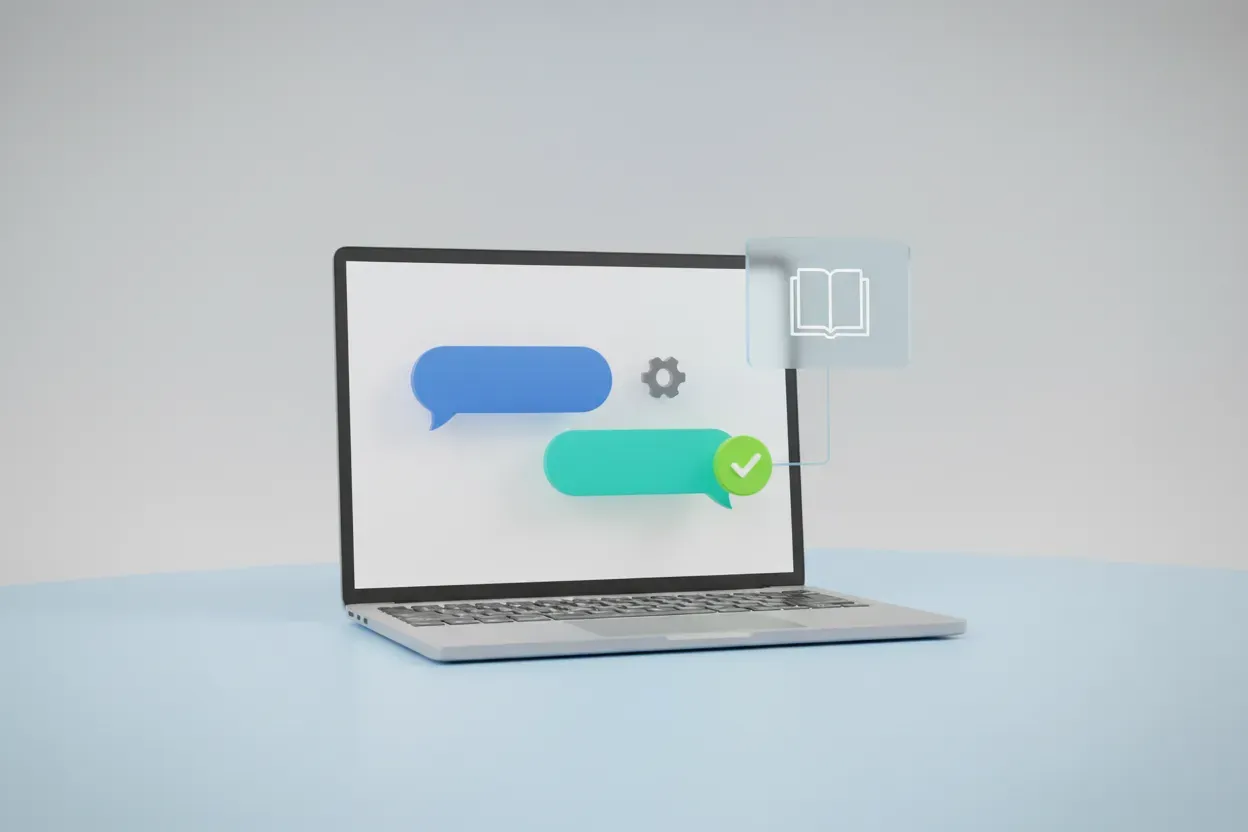How Do You Overcome the Fear of Failure in Entrepreneurship?
In the entrepreneurial journey, overcoming the fear of failure is a pivotal step toward success. We’ve gathered personal experiences and tips from nine founders and CEOs, highlighting strategies from embracing experiments to learn and adjust to breaking goals into achievable tasks. Discover how these leaders navigate the challenges and turn fear into a driving force for growth.
- Embrace Experiments to Learn and Adjust
- Find Inspiration in Your “Why”
- Adopt a Data-Centric Mindset
- View Setbacks as Learning Opportunities
- Seek Support from Mentors and Peers
- Harness Fear with an Iterative Mindset
- Redefine Failures as Stepping Stones
- Accept Failure as Part of the Process
- Break Goals into Achievable Tasks
Embrace Experiments to Learn and Adjust
As a serial entrepreneur, I’ve learned that every change—new product features, new pricing models, etc.—is just an experiment. Every experiment has a positive outcome because you always learn something from it.
The trick is to run small experiments so you can quickly learn and adjust. The more experiments you run, the quicker you’ll discover the path to success.
For example, we thought rebranding our app would help gain traction with our target audience of local business owners. It had no impact. But while measuring the results of this experiment, we learned we had an education issue rather than a branding issue. So, we launched a “best practices” blog focused on using the app to solve real-world problems. This experiment was wildly successful across all metrics.
The only time you fail as an entrepreneur is when you run out of money or run out of ideas. Everything else is just a learning experience.
Steven Roth, Founder, DeepSeed AI
Find Inspiration in Your “Why”
Fear of failure is a common hurdle that many aspiring entrepreneurs face, and I certainly experienced it myself when starting My Millennial Guide. The idea of leaving the security of a steady paycheck and venturing into the unknown was daunting, to say the least.
One personal experience that helped me overcome this fear was reflecting on the courage it took for my immigrant parents to uproot their lives and start anew in a foreign country. Their determination to build a better future for our family, despite the challenges and uncertainties they faced, was truly inspiring. It reminded me that great rewards often come with great risks, and that fear should not be a barrier to pursuing one’s dreams.
My tip for overcoming the fear of failure in entrepreneurship is to focus on the “why” behind your venture. When you have a clear and compelling purpose—whether it’s solving a problem, making a positive impact, or achieving financial freedom—it becomes easier to push through the doubts and fears. Remind yourself of your “why” daily, and let it fuel your determination to succeed. Embracing a growth mindset and viewing setbacks as learning opportunities, rather than failures, can also help alleviate this fear.
Brian Meiggs, Founder, My Millennial Guide
Adopt a Data-Centric Mindset
Facing the fear of failure is an integral part of any entrepreneurial journey, including my own. While steering Businessmap’s growth aspects, I experienced significant hurdles and moments when outcomes were uncertain. My go-to approach during such times is to employ a data-centric mindset. Instead of focusing on the possibility of failure, I concentrate on analyzing performance metrics to glean insights and guide decision-making.
This method enabled me to interpret “failures” not as dead-ends, but as valuable learning opportunities that provide key performance insights and reveal areas for improvement. It’s a shift in perspective—seeing fear of failure not as a block, but as an invitation for innovation. This approach has significantly improved our strategic planning and execution at Businessmap, fostering a culture of continuous improvement and courage despite the odds.
Gabriel Lukov, Head of Inbound Growth, Businessmap
View Setbacks as Learning Opportunities
Overcoming the fear of failure in entrepreneurship involves embracing the mindset that setbacks are learning opportunities. One personal experience that helped me was when Innovate faced a major project setback due to an unexpected client cancellation.
Instead of seeing it as a failure, we analyzed what went wrong and used it to improve our client communication and project management processes. This experience taught me to view failures as valuable lessons rather than defeats. My tip is to always focus on what you can learn from each experience and continuously apply those lessons to grow and improve your business.
Daniel Bunn, Managing Director, Innovate Agency
Seek Support from Mentors and Peers
Connecting with seasoned entrepreneurs who have navigated common challenges provides invaluable insights and reassurance. This is why I find one of the best ways to overcome the fear of failure in any business venture is to surround yourself with support through avenues like mentorship.
Mentors can share their own experiences with failure, often emphasizing that it is a common and often essential part of the path to success. Their stories help to make your fears feel less isolating and more like rites of passage in the entrepreneurial world. Their guidance on strategic decisions and problem-solving is also helpful for avoiding common pitfalls and approaching obstacles with a clearer, more informed perspective.
Having a support network of peers and advisors can also be a crucial part in maintaining confidence and motivation. Even for me personally, whenever I faced doubts or setbacks, discussing these issues with my support group offered fresh perspectives and practical advice. This collective wisdom has been a source of strength, making me feel more equipped to tackle challenges head-on. Knowing that I am not alone in my journey, and that I have access to a wealth of experience and support, has significantly alleviated my fears. It has transformed my approach to entrepreneurship, allowing me to embrace risks and view failures as opportunities for growth and learning, ultimately enhancing my resilience and success.
Sean Carroll, Founder and Director, Vixen Digital
Harness Fear with an Iterative Mindset
Fear of failure can be an entrepreneur’s greatest hurdle, but it can also be an incredible motivator if you learn to harness it. One strategy that I’ve applied in my own journey as the CEO of LLC Attorney was adopting an iterative mindset.
I specifically remember trying to radically change the delivery model for legal services, a venture that had the potential to fall flat. I incorporated my academic expertise in Mathematics and Philosophy to develop a process-oriented framework—breaking down the tasks into manageable components, testing often, making incremental improvements, and iterating again. This iterative approach allowed me to deal with potential shortfalls or failures on a micro level and then optimize, leading to greater success in the long run.
Drawing a lesson from mathematics, I treated failed attempts as stepping stones, not roadblocks, demonstrating that a “failure” is just another data point on the journey of entrepreneurship. By recasting your fear of failure into fuel for growth and learning, you can foster resilience and perseverance, which are key to any entrepreneur’s success.
Andrew Pierce, CEO, LLC Attorney
Redefine Failures as Stepping Stones
Redefining “failures” was a turnaround point for me in overcoming the fear of failure in entrepreneurship. Early on in the formation of Nationwide United Auto Transport, I encountered a massive setback—a deal fell through on which we were heavily reliant for growth. It was not just a financial blow, but it shook my self-confidence and brought in the fear of downfall.
However, instead of letting the fear paralyze me, I began to perceive failures as stepping stones. Let me share what worked for me: open communication and actionable strategies. I rallied my team together, openly discussed the situation, and sought their inputs.
Engaging my team not only provided collective wisdom but also brought everyone on the same page, fostering a sense of belonging and morale boost. We laid out an aggressive recovery plan, which involved exploring new clientele and additional services. This crisis led us to diversify, which positioned us better in the market. In the end, we became more resilient, ready to take on challenges. My personal tip: Failures are your best mentors. Listen to them closely.
Chris Estrada, CEO and Founder, Nationwide United Auto Transport
Accept Failure as Part of the Process
I’ve been running the business with my husband for nearly a decade, but we had to work to overcome our fear of failure. My best tip for overcoming this fear is to stop seeing failure as an endpoint and instead accept it as part of the process.
Carey Bentley, CEO, Lifehack Method
Break Goals into Achievable Tasks
Conquering the fear of failure is one of the biggest hurdles you will face when venturing into entrepreneurship; in fact, it is one of the keys to success and certainly one of the paths to self-improvement. The best way to overcome this fear is to change the way it is perceived: the fear of failure is a powerful motivator for learning, rather than an indication of worth. By cultivating a growth mindset, entrepreneurs can see challenges and failures as a natural part of the learning process on the road to success.
One of the biggest influencers in driving me to get over it was a real-life experience very early on in my entrepreneurial journey that helped me tremendously. I started a company that, despite a lot of planning, efforts, and hard work, failed to get the traction that we had hoped for. At first, I was disappointed and felt the enterprise was a flop. But, when it settled, I realized that the journey helped me understand the demand in the market, the way customers behave, and the way businesses operate.
Breaking down your goals into smaller, more achievable tasks is also a good way of averting the fear of failure. Not only does this approach serve to reduce the size of the daunting target, but it also enables smaller individual wins to be celebrated, which in turn can serve to raise confidence and presence.
Instead of declaring you will launch a product in a year, break that down into critical milestones per month, such as market research, a demo, or that first bit of funding. When you celebrate these little victories, you reduce the fear of failure and continue to see things in a positive, proactive way.
Alex Cornici, Founder and CEO, The Traveler







































